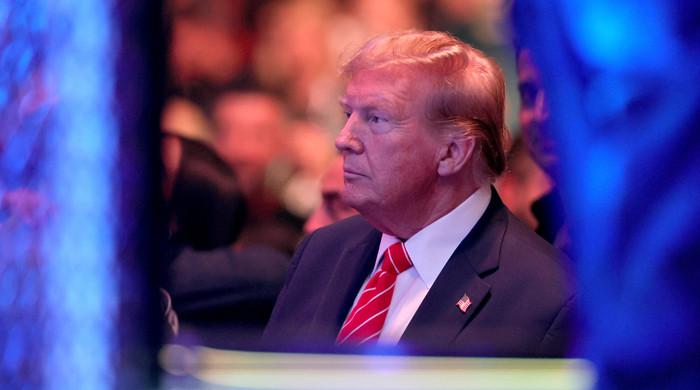For more than 20 years, I have maintained a consistent position when it comes to immigration policy: we should have one.
I'm less concerned about the number of immigrants we take in each year than I am about the fact that we (voters, policymakers, politicians, whatever) don't choose a number.
I would be fine with 1 million or 2 million immigrants a year. I would also be fine with a temporary freeze on most immigration. I think that preferences for skilled immigrants are totally defensible. I also believe that a generous asylum policy is morally preferable to a narrow one.
But for me, the priority is not the number or type of immigrants we welcome; It's making a decision about the number and type and sticking to it.
If the figure is too high or low, authorities can change it. If they don't change it, voters can elect a politician or party who will. But if Congress says the number is 1 million per year, that should be the real number.
The late Democratic Congresswoman Barbara Jordan of Texas, who chaired the U.S. Immigration Reform Commission in the 1990s, put it succinctly: “The credibility of immigration policy can be measured by one simple criterion: the people who should enter, enter; people who should not enter are left out; and people who are considered deportable must leave.”
Credibility is important for any government effort, but it is especially important for immigration because few issues share its ability to sow public discontent. The feeling that immigration is “out of control” generates distrust, incites nativism and fuels panic and conspiracy theories.
It was always like this. In colonial America, Benjamin Franklin repeatedly warned of the danger posed by unbridled German immigration, worrying that “soon they will outnumber us, that…we…in my opinion will not be able to preserve our language, and even our government will become precarious.” In 1798, Congress passed the Alien and Sedition Acts, which are remembered for their attack on free speech, but were driven by fear that the French and other immigrants (i.e., foreigners) were an enemy within. The Naturalization Act, part of the Alien and Sedition Acts, made it difficult for immigrants to become citizens and vote.
Later chapters of this old story include the Know-Nothings, all sorts of panic about the Irish, the Yellow Peril, and, of course, “replacement theory.” The same sentiments are now driving the growing prospects of far-right parties in Europe and the domestic success of Donald Trump despite (or because of) all his ugly rhetoric about “vermin” and blood “poisoning.”
That's why President Biden's bumbling handling of the border crisis is arguably his biggest responsibility after his age. In fact, I would argue that the former influences attitudes about the latter, in the sense that the impression of anarchy on the border feeds the feeling that it is weak and overwhelmed.
As Europe's travails demonstrate, this is not just an American problem. Large-scale immigration disrupts politics and society wherever it occurs.
Furthermore, despite America's past and present struggles with immigration, this country is not anti-immigrant. In 2022, the United States had approximately 46 million foreign-born residents, more than half of them citizens, representing about 14% of the population. (Immigrants from China, by contrast, number approximately 0.04% of its population.) There is no country in the world that is better at absorbing and assimilating people, and we should feel deeply patriotic proud of that.
This is important to keep in mind because the rhetoric on both sides of the debate makes restoring the credibility of our immigration system more difficult. Contrary to Pat Buchanan's dire prophecies, Mexican Americans have not shown much interest in a “Reconquista” of the American Southwest. And despite the constant cries about America's nativism and xenophobia, the melting pot continues to bubble.
As a general rule, ordinary Americans are much more sensible and decent on this issue than our leaders. A growing number of Latinos want stricter enforcement of border and immigration laws, which is a sign that the loudest voices on both sides are far from reality. In fact, if Trump wins this year's election, it will be in part because working-class Latinos have assimilated into the culture and politics of the rest of the American working class.
The editorial stance at National Review, where I worked for two decades, was always that if responsible politicians do not address immigration responsibly, irresponsible politicians will exploit the issue to get elected. If the 2016 elections were not enough to prove it, the 2024 elections could be.












